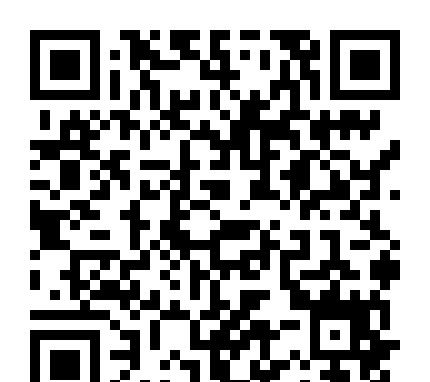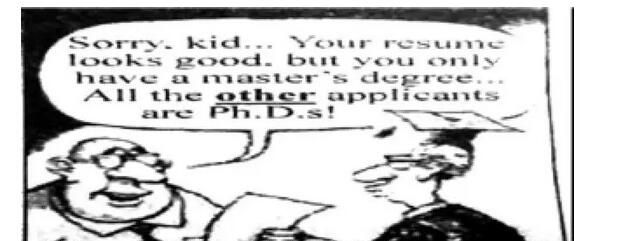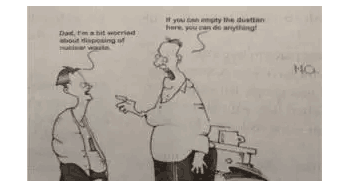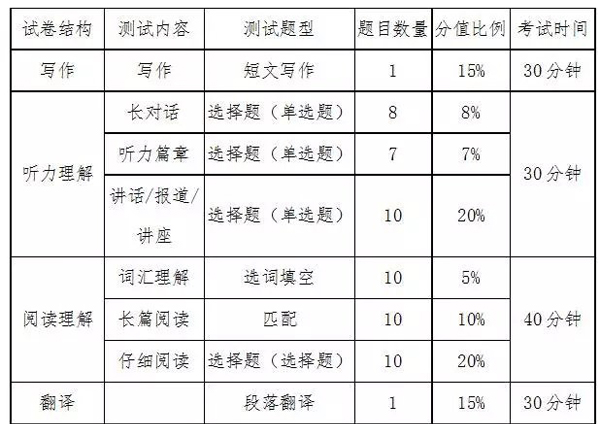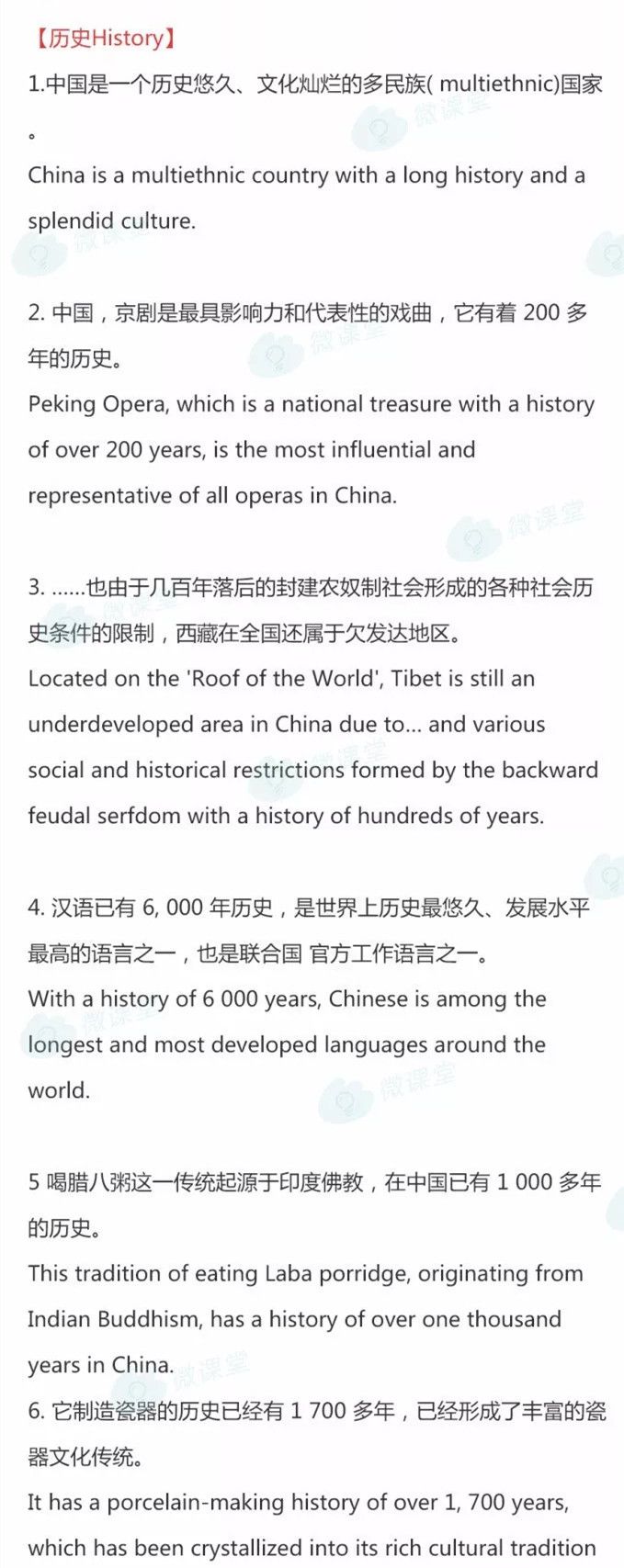二○○一年下半年全国高等教育自学考试综合英语(二)
|
综合英语(二) PART ONE Ⅰ.语法、的词汇。从 [A]、的[B]、的[C]、的[D] 四个选项中,选择一个正确答案,并在答题纸上将所选答案的字母涂黑。(本大题共25小题,每小题1分,共25分) Complete each of the following sentences with the most likely answer. (25 points) 1. None of their new products have sold well, __________? [A] haven't they [B] have they [C] hasn't it [D] has it 2. _________ invited to the funeral, the couple were truly worried. [A] Not to be [B] Not having been [C] Having not been [D] Not having invited 3. When suddenly transplanted in a new land, quite a lot of people find ________ to adjust to the way of life there. [A] difficult [B] difficulty [C] the difficulty [D] it difficult 4. When he visited the house 50 years later, he found everything was __________ it had been before. [A] that [B] which [C] same [D] as 5. According to economic theory, a nation should produce and export those items ________ it gains a competitive advantage. [A] from which [B] for that [C] by what [D] about it 6. Much _________ said about the problem but nothing ________ been done so far. [A] were, has [B] is, has [C] were, had [D] had been, has 7. I've arranged _________ Professor Zhang at his office this coming Friday. He said he'd be glad to see you. [A] you to meet [B] to meet [C] for you to meet [D] for a meeting 8. _________ worries me is not how to raise the money, but where to find the right people for the project. [A] That [B] Which [C] Who [D] What 9. After a hard day's work, I couldn't move my legs. It was ________ they stuck to the floor. [A] as if [B] like [C] just as [D] similar to 10. While __________ from his operation, David renewed an old interest in stock-car racing. [A] was recovering [B] recovering [C] was recovered [D] recovered 11. Most trains _________ long distances have a dining car and a club car where soft drinks are sold. [A] gone [B] that goes [C] going [D] to be going 12. Without the work of scientists and inventors before him, Thomas Edison _________ so much. [A] didn't achieve [B] wasn't able to achieve [C] wouldn't have achieved [D] shouldn't have achieved 13. This is a decision that will ________ the company's future. [A] effect [B] affect [C] control [D] influence 14. It's __________ that it will rain if the wind changes, but with such a cloudless sky it doesn't seem _________. [A] likely, possible [B] liable, likely [C] liable, probable [D] possible, probable 15. --Their offer seems too good to be true. --Don't worry--there are no ________. [A] conditions connected [B] lines added [C] wishes imposed [D] strings attached 16. Good manners depend _________ on how we look at ourselves _________ on how we look at other people. [A] not very much, and [B] as much, but [C] not so much, as [D] as much as, and 17. The lawyer of the defendant met all those who were _________ the case. [A] involved in [B] connected about [C] concerned by [D] worried on 18. The professor _________ his students working part time to the extent that they don't neglect their studies. [A] approves of [B] admits to [C] praise about [D] agree in 19. Heavy debts and an old car were _________ his company after the economic crists. [A] that remained about [B] that left over [C] what remained of [D] what survived from 20. I took _________ that they would apologize for what they had done to the picture. [A] it seriously [B] it wrong [C] it for granted [D] into consideration 21. Several customs officials have been _________ taking bribes from a foreign company. [A] charged of [B] accused of [C] suspected about [D] protested against 22. Victims of the poisonous gas get sleepier and sleepier until they _________ consciousness, never to _________ it. [A] lose, regain [B] sink, gain [C] fail, get [D] drop, have 23. I believe travelling can broaden our mind, and that music can _________ our life. [A] encourage [B] ennoble [C] enlarge [D] enrich 24. They _________ trouble finding the right person for the job. [A] made [B] got [C] had [D] took 25. We do not _________ knowledge only in schools. [A] learn [B] study [C] acquire [D] get Ⅱ. 完形填空。从[A]、的[B]、的[C]、的[D]的四个选项中,选择一个正确答案,并在答题纸上将所选答案的字母涂黑。(本大题共15小题,每小题1分,共15分) Fill in each blank in the passage with the most likely answer.(15 points) Every word you use in your writing should reflect your purpose. If your purpose is to give 26 in an exact, impersonal way, the words you 27 should have a meaning that is nearly the same for everyone. 28 meanings are called denotative(本意的)meanings, and 29 can be found in a dictionary. If your purpose is to 30 your personal views or to invite the reader to 31 your experiences and attitudes, you should use words that may 32 individual meanings to the reader. These meanings are called connotative(延伸的)meanings. Be aware of the way the 33 in which the words are used can influence 34 the connotative and denotative meanings of your words. Your 35 use of words can affect the reader's understanding of your subject and 36 feelings toward it 37 , the selection about the girls of New York is an advertisement. Like an advertiser, the writer chooses his words deliberately 38 he has. Imagine that you are advertising something and wish to create a favorable view of it. Write one or two paragraphs 40 you should be careful with your choice of words. 26. [A] informations [B] some informations [C] an information [D] information 27. [A] chose [B] choose [C] made [D] make 28. [A] Same [B] The same [C] Such [D] The such 29. [A] it [B] this [C] that [D] they 30. [A] express [B] understand [C] remember [D] believe 31. [A] show [B] share [C] express [D] expose 32. [A] suggest [B] suggest to [C] suppose [D] suppose to 33. [A] contract [B] contact [C] context [D] contest 34. [A] either [B] neither [C] each [D] both 35. [A] thoughtful [B] thoughtless [C] considerate [D] considerable 36. [A] yours [B] ours [C] theirs [D] his 37. [A] For a sense [B] For sense [C] In a sense [D] In sense 38. [A] so that [B] since [C] unless [D] though 39. [A] which [B] as [C] what [D] whatever 40. [A] which [B] in which [C] those [D] in those Ⅲ. 难句释义。从[A]、的[B]、的[C]、的[D]的四个选项中,选择一个正确答案,并在答题纸上将所选答案的字母涂黑。(本大题共10小题,每小题1分,共10分) Choose the closest paraphrased version for each of the sentences or italicized parts.(10 points) 41. The answers [to your“stupid”questions] can be a gateway to insights. [A] To succeed, you have a long way to go before you can achieve your goal. [B] You have to go through a certain place to find the answers in the right books. [C] Possibly you'll gain deep understanding of things while trying to get the answers. [D] The answers may give you some idea about how to solve a mystery in your studies. 42.“An artist's heart is his head,”replied Trevor,“and besides, our business is to show the world as we see it, not to make it better.” [A] the work of artists is to present the world honestly, not to prettify it. [B] artists paint everything they see in the world, not just the beautiful. [C] in their paintings artists show whatever they see, not just what they like. [D] artists should bring into their paintings both good things and bad. 43. He marveled now that he had even considered any other choice. [A] He couldn't understand why he had hesitated for a long time. [B] He wondered how this decision hadn't been his only choice. [C] It surprised him that this solution hadn't come to him earlier. [D] It was marvelous that his attitude had changed completely. 44. How do you go about making a boy into a zero? [A] Who should be responsible for the misfortunes of this poor boy? [B] How is it that a bright boy suddenly becomes a dull and slow learner? [C] I just don't understand how education turned a boy into a complete failure. [D] I don't know how bad teaching could possibly change a boy into something. 45.“It was pleasant to believe,” she wrote later,“ that much of Nature was forever beyond the tampering reach of man.” [A] it was simply beyond man's power to keep much of Nature from changing. [B] man would never be allowed to do whatever he wants to with much of Nature. [C] man should not and could not change much of his environment the way he desires. [D] man mustn't interfere with Nature, for it was pleasant to see it as it had always been. 46. One difficult but essential thing to remember is to refuse to let other people's bad manners good you into retaliating in kind. [A] The best way to deal with discourteous people is to pretend that they are courteous and deserve your courtesy. [B] You should react to other people's bad manners kindly and refuse to believe that they mean to hurt you. [C] One thing to remember is to ignore other people's bad manners, and do not respond angrily. [D] When other people treat you impolitely, you should avoid taking similar actions. 47. The plane did not frighten Kaz. For one thing, Hiroshima had gone almost untouched by the air war. [A] Any forces fighting Japan had never occupied Hiroshima. [B] Very seldom had Hiroshima been bombed so far during the war. [C] Almost no fighting had ever occurred in and around Hiroshima. [D] Hiroshima was the only city where peace was maintained in the war. 48. Men and trees and flowers, we feel, have all settled down comfortably together. The motto is,“ Live and let live.” [A]“Let all others live if you want to live a very long and happy life.” [B]“Let all nations accept one another and live peacefully together.” [C]“Let all men stop fighting and exist side by side like brothers.” [D]“Let us accept the existence of our fellow creatures on earth.” 49. Your political philosophy assumes more depth, appreciation of a play becomes sharper, taste in food or wine is enhanced, enjoyment of a sport is intensified. [A] Friendship helps to improve a person in many ways. [B] When eating with friends you enjoy the food better. [C] Friendship deepens your political awareness and sharpens your appreciation of art and literature. [D] You benefit from friends politically, philosophically, artistically, physically and also financially. 50. One rainy night when car windows were sealed against me I came back soaked and with not a single sale to report. [A] I returned home tired and wet with sweat because I had run all the way back in the rain. [B] I hurried home in the rain to report to my mother how many magazines I had sold. [C] I didn't bring any money back, and I had nothing interesting to tell my family. [D] I didn't even sell one copy of the magazine and I came home wet through. Ⅳ. 阅读理解。认真阅读下列两篇短文,每篇短文后有5个问题,根据短文的内容从[A]、的[B]、的[C]、的[D] 四个选项中,选择一个正确答案,并在答题纸上将所选答案的字母涂黑。(本大题共10小题,每小题1分,共10分) Read the two passages and answer the questions.(10 points) Blameless I was a freshman in college when I met the Whites. They were completely different from my own family, yet I felt at home with them instantly. Jane White and I became friends at school, and her family welcomed me like a long-lost cousin. In my family, it was always important to place blame when anything bad happened. “Who did this?” My mother would yell about a mess in the kitchen. “This is all your fault, Katharine,” My father would insist when the cat got out or the dishwasher broke. From the time we were little, my sister, brothers and I told on each other. We set a place for blame at the dinner table. But the Whites didn't worry about who had done what. They picked up the pieces and moved on with their lives. The beauty of this was driven home to me the summer that Jane died. Mr. and Mrs. White had six children: three sons and three daughters. One son had passed away in childhood, which may be why the surviving five children remained so close. In July, the White sisters and I decided to take a car trip from their home in Florida to New York. The two oldest, Sarah and Jane, were college students, and the youngest, Amy had recently turned sixteen. The proud possessor of a brand-new driver's license (驾照),Amy was excited about practicing her driving on the trip. She showed off her license to everyone she met. The big sisters shared the driving of Sarah's new car during the first part of the trip, but when they reached less populated areas, they let Amy take over. Somewhere in South Carolina, we pulled off the highway to eat. After lunch, Amy got behind the wheel. She came to an intersection (道路交叉点) with a stop sign. Whether she was nervous or just didn't see the sign no one will ever know, but Amy continued into the intersection without stopping. The driver of a large truck, unable to brake (刹车) in time, plowed into our vehicle. Jane was killed instantly. I survived the accident with only a few bruises (伤痕). The most difficult thing that I've ever done was to call the Whites to tell them about the accident and that Jane had died. As painful as it was for me to lose a good friend, I knew that it was far worse for them to lose a child. When Mr. and Mrs. White arrived at the hospital, they found their two surviving daughters sharing a room. Sarah's head was wrapped in bandages; Amy's leg was in a cast (石膏). They hugged us all and cried tears of sadness and of joy at seeing their daughters. They wiped away the girls' tears and teased a few giggles (咯咯笑) out of Amy as she learned to use her crutches (双拐). To both of their daughters, and especially to Amy, over and over they simply said, “We're so glad that you're alive.” I was astonished. No blame. No accusations. Later, I asked the Whites why they never talked about the fact that Amy was driving and had run a stop sign. Mrs. White said, “Jane's gone, and we miss her terribly. Nothing we say or do will bring her back. But Amy has her whole life ahead of her. How can she lead a full and happy life if she feels we blame her for her sister's death?” They were right. Amy graduated from college and got married several years ago. She works as a teacher of learning-disabled students. She's also a mother of two little girls of her own, the oldest named Jane. 51. The writer of the article is _________. [A] Mrs. White's niece [B] The Whites' cousin [C] Sarah's friend at college [D] Jane's friend at school 52. In what way did the writer find the White family completely different from her own? [A] Her parents were not as good-natured and loving as the Whites. [B] Hers were very strict parents while the Whites were too permissive. [C] When something went wrong the Whites didn't blame their children for it. [D] When something bad happened, her parents wanted the children to learn a lesson. 53. How did the accident occur? [A] Amy ran a stop sign at an intersection and a truck crashed violently into their car. [B] Amy wanted to impress her sisters and was driving too fast to see a coming truck. [C] Amy was too nervous to brake in time when she saw a truck running towards them. [D] Amy was an inexperienced driver and didn't know what to do when she saw the sign. 54. Mr. and Mrs. White did not blame Amy for Jane's death because _________. [A] Amy was badly injured herself and they didn't want to add to her pain [B] they didn't want Amy to live with a guilty conscience the rest of her life [C] Amy was their youngest daughter and they loved her best [D] they didn't want to blame their children before an outsider 55. From the passage we can conclude that _________. [A] Amy has never recovered from the shock [B] The accident didn't change Amy in the least [C] As her head was severely damaged, Amy didn't feel any guilt [D] Amy has lived quite a normal life, but she can never forget Jane I Want a Wife Too I belong to that group of people known as wives. I am a Wife. And, not altogether incidentally, I am a mother. Not too long ago a male friend of mine appeared on the scene fresh from a divorce (离婚). He had one child, who is, of course, with his ex-wife. He is obviously looking for another wife. As I thought about him while I was cooking one evening, it suddenly occurred to me that I, too, would like to have a wife. Why do I want a wife? I would like to go back to school so that I can become economically independent, support myself, and, if need be, support those dependent upon me. I want a wife who will work and send me to school. And while I am going to school I want a wife to take care of my children. I want a wife to keep track of the children's doctor appointments. And to keep track of mine, too. I want a wife to make sure my children eat properly and are kept clean. I want a wife who will wash the children's clothes and keep them mended. I want a wife who arranges for their schooling, makes sure that they have an adequate (足够的) social life with their peers (同伴), takes them to the park, the zoo, etc. I want a wife who will take care of my physical needs. I want a wife who will keep my house clean. I want a wife who will keep my clothes clean, mended, replaced when need be, and who will see to it that my personal things are kept in their proper place so that I can find what I need the minute I need it. I want a wife who cooks the meals, a wife who is a good cook. I want a wife who will plan the menus, do the necessary grocery shopping, prepare the meals, serve them pleasantly, and then do the washing up while I do my studying. I want a wife who will care for me while I am sick and sympathize with my pain and loss of time from school. I want a wife to go along when our family takes a vacation so that someone can continue to care for me and my children when I need a rest and change of scene. If, by chance, I find another person more suitable as a wife than the wife I already have, I want the liberty to replace my present wife with another one. Naturally, I will expect a fresh, new life: My wife will take the children and be solely responsible for them so that I am left free. When I am through with school and have a job, I want my wife to quit working and remain at home so that my wife can more fully and completely take care of a wife's duties. My God, who wouldn't want a wife? 56. The author is _________. [A] a married man [B] a married woman [C] a single man [D] a single woman 57. According to the passage, a man wants a wife because _________. [A] he needs someone to help with his studies [B] he feels lonely without her [C] he cannot have clean clothes to wear without a wife [D] material comforts can not be attained without a wife 58. According to the author, a husband usually wants all of the following EXCEPT _________. [A] being able to marry a new wife whenever he pleases [B] being bound for life with his wife by marriage [C] being able to insist that his wife take a job while he is at school [D] having the right to demand that his wife perform a wife's duties entirely at home when he has got a job 59. What is implied in the last paragraph? [A] The wife is often in great despair. [B] The wife is a little disappointed. [C] The wife feels discouraged. [D] The wife feels her sacrifice unpaid for. 60. What is the general tone of the essay? [A] Sad. [B] Cheerful. [C] Ironical. [D] Arrogant. PART TWO Ⅴ. 词形转换。将括号里提供的词转换成适当的词形填入答题纸上相应的位置。(本大题共10小题,每小题1分,共10分) Complete each of the following sentences with a (compound) word derived from the one(s) given in brackets.(10 points) 61. After decades of tension, the two countries are now trying to _________(normal) relations with each other. 62. _________(population) is one of the problems many developing countries are faced with. 63. Their _________(shame) treatment of the crippled has drawn cries of protest. 64. The visitors sitting in on the class were impressed by the children's _________.(lively) 65. Let's keep the criticism general and _________.(personal) 66. _________(modest) is a wonderful thing; it doesn't cost a cent and makes you look like a million. 67. The team has been training hard in _________(prepare) for the 2004 Olympic Games. 68. Mrs. Johnson felt _________(easy) about leaving the children alone at home. 69. John's brother has been working in a United Nations _________(keep, peace) force. 70. Can you imagine a _________(white, hair) old lady going skating? Ⅵ. 句子翻译。将下列句子译成英语,译文写在答题纸上的相应位置。(本大题共5小题,每小题3分,15分) Translate the following sentences into English.(15 points) 71. 只要老大娘一直盼着儿子能归来,她就有生活下去的愿望。 72. 你称为废物,我看作是宝贝。你眼中的愚蠢,在我心目中却是诚实。 73. 孩子不断地逃学、的撒谎,父母常常十分恼火。(keep) 74. 她说英语几乎与说母语一样好。 75. 教授告诉经理说我是忠实的典范,可以信赖。 Ⅵ. 短文写作。根据所给题目,写出150字的短文。(15分) Write a short essay on the following topic in about 150 words.(15 points) Topic: What do you think are the three most important elements of love? What do they entail? 综合英语(二)试题 参考答案 Ⅰ【参考答案】 1.[B] 2.[B] 3.[D] 4.[D] 5.[A] 6.[B] 7.[C] 8.[D] 9.[A] 10.[B] 11.[C] 12.[C] 13.[B] 14.[D] 15.[D] 16.[C] 17.[A] 18.[A] 19.[C] 20.[C] 21.[B] 22.[A] 23.[D] 24.[C] 25.[C] Ⅱ.【参考答案】 26.[D] 27.[B] 28.[C] 29.[D] 30.[A] 31.[B] 32.[A] 33.[C] 34.[D] 35.[A] 36.[D] 37.[C] 38.[A] 39.[B] 40.[B] Ⅲ.【参考答案】 41.[C] 42.[A] 43.[B] 44.[C] 45.[C] 46.[D] 47.[B] 48.[D] 49.[A] 50.[D] Ⅳ.【参考答案】 51.[D] 52.[C] 53.[A] 54.[B] 55.[D] 56.[B] 57.[D] 58.[B] 59.[D] 60.[C] Ⅴ.【参考答案】 61. normalize 62. Overpopulation 63. shameful/shameless 64. liveliness 65. impersonal 66. Modesty 67. preparation 68. uneasy 69. peacekeeping/peace-keeping 70. white-haired Ⅵ.【参考答案】 71. As long as/So long as/If the Granny could look forward to/could keep alive her hope for the return of her son, there was something (for her) to live for. 72. What you call rubbish I call treasure(s). What seems foolishness to you is honesty to me. 73. Parents are often annoyed when their children keep staying away from school and lying. 74. She speaks English almost equally/as well as she does her mother tongue/native language. Or: Her proficiency/ability in spoken English is almost equal to that in her mother tongue/native language. 75. The professor told/said to the manager that I was the soul/model of honesty and could be trusted. Ⅶ.【参考答案】 Sample 1: In my opinion, understanding, respect and responsibility are the three most important elements of love. Love means knowledge or understanding. By knowledge, I mean I know the person I love. I am aware of the many sides of the other person not just the beautiful side but also the imperfections. Love means having respect for the dignity of the person I love. If I love you I can see you as a separate person with your own values, feelings and interests. I do not insist that you give up your own identity and conform to what I expect you to be. Love means responsibility towards the person I love. If I love you, I'm responsive to most of your needs as a person. I am directly involved in your happiness and misery. All in all, understanding, respect and responsibility are the three most important elements of love. (148 words) Sample 2 As far as I'm concerned, the most important elements of love are knowledge, tolerance of imperfection and its reciprocal nature. Knowledge means not only being aware of what the other person is now, but also seeing the potential within the person. It implies knowing the person inside out not only the strengths but also the weaknesses, not only the obvious characteristics, but also the inner self. Tolerance of imperfection entails a willingness to stay with each other in hard times and see each other's problems through. In this imperfect world, both sides should be prepared for times of pain, failure and despair, and believe that love can make the world go round. By nature love is reciprocal. It involves two sides. Both persons love and are loved; care and are cared for. They both benefit from their love; they are a stimulant for each other to become more fully what they might become. (153 words |

